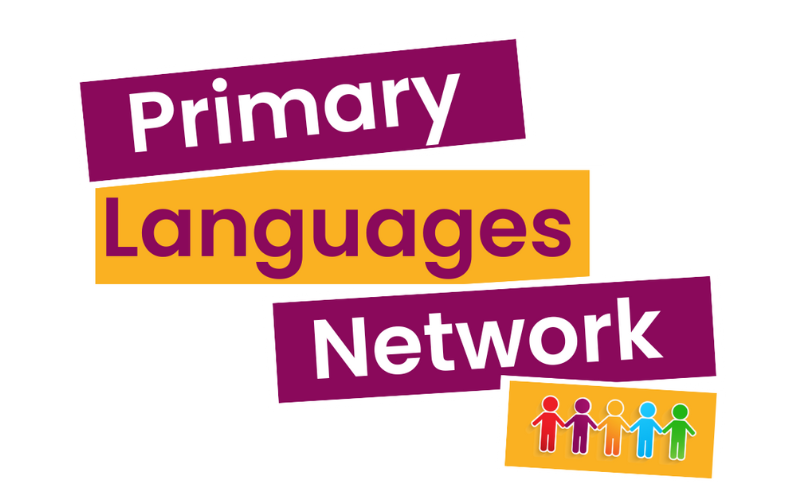Across our network we work with schools who are all at different stages of setting up and delivering primary language learning and each year we welcome new schools who want to set off on their own individual school's language learning journey.

This year these specific
"Beginning with languages "
blogs will try to offer "bite size chunks" of indirect help and support to schools, who are doing exactly that .... just setting off and implementing a language learning curriculum
.
Take a look back at"beginning with languages" blogs
,
,
and
.

Your checklists so far have been:
Sept - Oct ,(first half term) Checklist
- It's all about establishing a whole school support system for all your staff
- It's about small steps and simple language learning
- It's about children and staff beginning to enjoy language learning
Mid October (end of the first half term), an additional new checklist bullet point!
- So how are you all getting on? How do you know that primary languages are being implemented in all the classes and are the teachers and children having fun in their learning?
November (moving in to the second half term of language learning),we added a couple of new challenges to your checklist!
- How successfully have you been able to build in "revisiting" opportunities to build the children and staff's confidence with the language you introduced last half term?
- Are you introducing,revisiting and re-using familiar games with familiar and unfamiliar language for example (e.g Bingo or Splat or maybe a game of Quiz Quiz Swap?)
- Have you encouraged all staff to practise key language using sound files and songs?
- Can all staff and children practise and learn a Christmas song or carol in the target language? (In beginning with languages blog three you can find links to You ~tube clips of a Christmas song lin French, Spanish and German
December-January (moving forward) your checklist was to:
- Did all your staff try out a simple listening and speaking Christmas activity based on a Christmas song?
- Have staff considered and been able to identify the links between activities we may use in KS1 when encouraging children to read and KS2 beginners language learning (sound-spelling links and activities)?
- Are KS2 staff building opportunities in to activities in the New Year to help learners to "broaden their vocabulary and develop their ability to understand new words ...."- Are staff in KS2 exploring nouns with their KS2 foreign language learners?

And now we are in February ......
- Reflection time for yourself as coordinator .Half way through the academic year reflection time for yourself as coordinator is needed: By now the school should be delivering some sequences of lessons and supporting each other to do so .This blog report Getting learning right (from the start) may help you as the subject coordinator to consider and identify next steps in building a language learning environment that is supportive across the whole of KS2
- Ask your teachers to think of ways they can develop lessons that encourage children to explore simple "role play " in their lessons.This blog post may help you to forward plan Exploring role play and see how we move from "asking and answering questions" to "engaging in conversations" and how this development takes time. These role play ideas will support staff to find simple ways to plan for role play activities with their classes:
Paper puppets with a purpose - asking and answering simple questions
Totem Pole prompt sticks to help children stage their conversation building
3D Art and practising personal information spoken sentences
Who lives here? Pictures as prompts to create simple imaginative dialogues language
- Continue to plan foreign language learning as an integral part of the school calendar.Coming up this month and at the start of March are Carnival and World Book day
- Plan for a whole school celebration on World Book Day of simple language the children have learnt( greetings , personal information questions and answers, colours, learning a song in a foreign language, listening and responding ) and add a touch of writing and recording this simple language by making mini books. In this blog post there are ideas based around "Elmer the Elephant ", one of the selected books for World Book Day in 2015.Elmer explorers -listening ,speaking and writing
- Encourage staff to celebrate the culture of the target language country.Carnival is one of the best ways to engage the whole school and to introduce some language and culture in KS1 too.Look at these simple ways that you can link foreign language learning to other areas of the curriculum and continue to explore the Learning Objectives in the DfE KS2 PoS during carnival celebrations
Carnival:
Exploring the music of Saint Saens and the carnival of animals
Here is the opportunity to teach a sequence of lessons based on the
nouns
for animals and link language learning to Art/DT/Music/ICT and Drama
Stretchy sound and letter balloons
Here is an opportunity to continue to explore
sound- spelling links
and create your own strechy colourful carnival balloons too
Read carefully and understand words,phrases and simple sentences based on fancy dress
Here is an opportunity to begin to introduce the skill of reading and explore the DfE KS2 POS objective of "reading carefully and understanding words".If you are attending our local network meetings then you can access all the resources you need to deliver this activity in French and Spanish here






